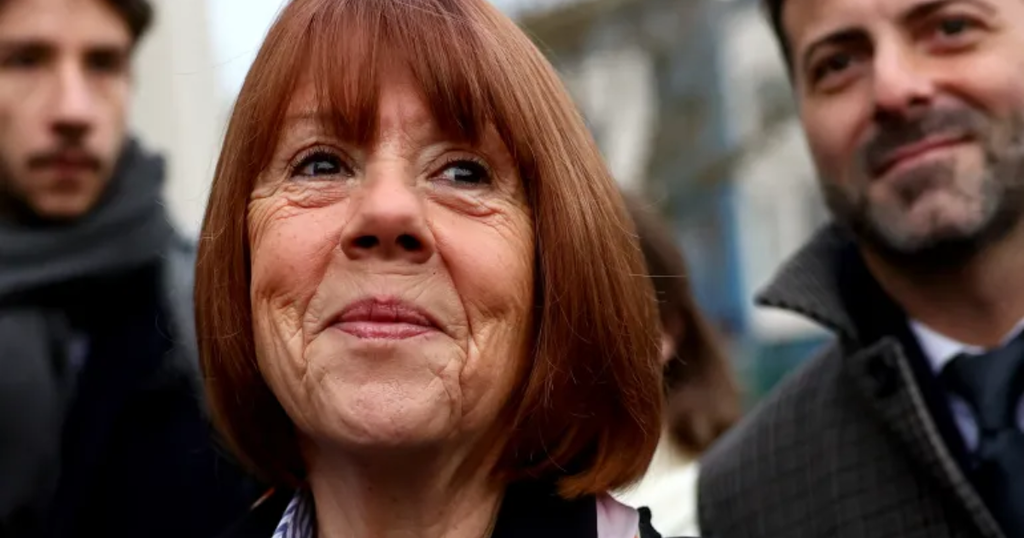Dublin Rape Crisis Centre welcomes verdict in Gisèle Pelicot case
19 December 2024

Dublin Rape Crisis Centre has welcomed the verdict in the Gisèle Pelicot case this morning (Thursday, 19 December 2024).
Rachel Morrogh, Chief Executive of Dublin Rape Crisis Centre said: “The guilty verdicts delivered by the French court today are warmly welcomed by Dublin Rape Crisis Centre. We salute Gisèle Pelicot as the exceptional person she is and celebrate not just her victory, but the enduring legacy it will have beyond the courtroom.
“She has said that “shame must change sides.” We in Dublin Rape Crisis Centre keenly feel this also, where our clients share the reality of being a victim of sexual violence and the blame and shame many are forced to endure.
“The case sickened people around the globe and opened up conversations about the meaning of consent, the staggering number of willing participants and the dehumanisation of victims. It also underscored fears amongst women that nowhere is safe, even your own home. Gisèle Pelicot was was raped for a decade in her own bed by scores of men, their only connection being their desire to sexually assault an unconscious woman.
“While people in Ireland may think that Gisèle Pelicot’s case is unusual and unique, there are aspects that are all too common here too. From our work in the area of sexual consent, Dublin Rape Crisis Centre knows that there is still a long way to go before it is fully understood and practiced by everyone here.
“We also know that the stigma that still surrounds sexual violence creates barriers to people speaking about what happened to them. As Gisèle Pelicot experienced, perpetrators can hide in the dark shadows of silence while victims carry the burden of trauma alone. In Ireland, only half of people who have experienced sexual violence ever tell another person, and even fewer get support in the form of psychological support or medical help.
“In Ireland, a woman’s risk of experiencing sexual violence in her lifetime is higher than her risk of being diagnosed with cancer. Our Government has acknowledged an “epidemic” of sexual violence exists. In the UK, police have declared violence against women a ‘national emergency’ in England and Wales.
“Given this high risk of sexual violence, girls are told from a young age that the world is not a safe place. They are instructed that to navigate this unsafe world, they must impose controls on their own behaviours - how they dress, how much they drink, who they mix with and how they get home. But all of us should have both the expectation that we can live a life free from sexual violence and that we should not have to limit our lives to try and achieve it, just because we are female. The responsibility for keeping women safe from violence by men cannot rest only with women.
“The cases of Gisèle Pelicot in France and Nikita Hand in Ireland have united women and men in their determination to eliminate sexual violence. Now we have the challenge to sustain momentum to achieve this goal, and Dublin Rape Crisis Centre will continue to push, advocate and agitate for this that. Until then, we stand in solidarity with all victims and survivors and are here for any person who has been affected by sexual violence of any form.”
Free, confidential & non-judgmental support for any affected by sexual violence is on the 24-hour National Helpline 1800 778888
/ENDS.
- Dublin Rape Crisis Centre is a non-governmental, voluntary organisation which has as its mission to prevent the harm and heal the trauma of rape. It offers a suite of services to victims/survivors of sexual violence. It also offers a wide range of training and education to professionals and volunteers.
- The recent Signs of Hope campaign platforms powerful messages of hope and encouragement from survivors to others who have not yet reached out for support – learn more at https://www.drcc.ie/signsofhope/
- We-Consent is a long-term national programme to inform, educate and engage with all members of our society about consent. More information and resources at https://www.we-consent.ie/
- You can donate towards Dublin Rape Crisis Centre’s work on drcc.ie/donate
- Other DRCC services and work:
- DRCC operates the National 24-hour Helpline 1800 778888 to support anyone affected by sexual violence in any part of the country. A webchat support service is available online at drcc.ie Mon-Fri, 10am-5pm. A Helpline Interpreting Service is available for those who do not speak English - more at https://bit.ly/DRCClang
- For those contacting the Helpline who are deaf or hard of hearing, we provide a text service, operating Mon-Fri from 8am to 6:30pm, at 086-8238443 and we also have a webchat service available Monday-Friday, 10am to 5pm, except holidays.
- Information on your options after sexual violence is available for free online at any time at drcc.ie/fyw in the Finding Your Way after Sexual Violence guide.
- DRCC offers counselling & therapy to adult survivors of sexual violence and to older adolescents from 16 years of age with parental/guardian consent.
- We provide accompaniment support for the Rotunda Sexual Assault Treatment Unit, to court or to Garda stations to people in Dublin and in surrounding areas, by arrangement.
- We have outreach offices at Coolock, Dóchas Women’s Centre, Balbriggan & Tallaght. Access to these services must be arranged via the National Helpline 1800 778888 during working hours, Mon-Fri.
- We ask that when reporting on this topic, journalists should remember that discussions on sexual violence can trigger personal trauma in those receiving the information. Where possible, please make reference to the National 24-hour Helpline 1800 77 88 88 for anyone who may be affected by the discussion.